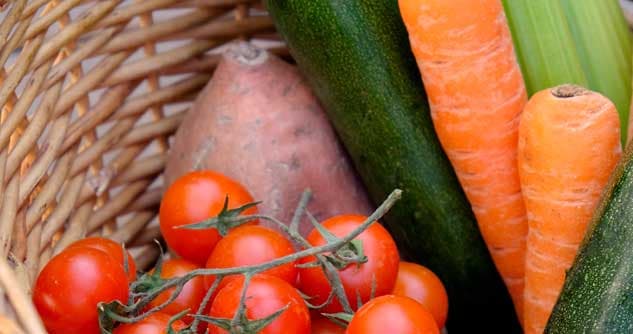(K-LOVE Closer Look) – You try to give away your tomatoes. Neighbors and friends say no to more cucumbers. Your trees drop oranges or cherries to rot. AmpleHarvest.org lists more than 8,000 food pantries in the United States that will gladly take excess fruits and veggies from your raised beds or backyard garden. “Share the wealth of your dirt,” invites Gary Oppenheimer, founder of the national non-profit dedicated to fighting food waste. Even one extra potato is welcome.
Can neighborhood food closets and pantries take food not in jars, boxes or cans? In short, Oppenheimer says, the answer is yes. The key is coordinating the day and time of your donation. Pantries on the list arrange to receive your vegetables or fruit on a certain day – and to avoid costly storage and fridge space they give it to local hungry families the very same-day.
Studies show nearly 30% of all food in the United States is wasted and yet 1 outta 10 Americans are not sure when they will get their next meal. Veterans, senior citizens and single parents are the most vulnerable. Local food closets and pantries are essential. “We gardeners grow 11-billion pounds of surplus harvest every year – that feeds 28-million people,” says Oppenheimer. Talk over the picket fence, he suggests. “Let your gardening friends and family across the country learn that the solution to hunger is in their backyard.”
The work of AmpleHarvest.org is nationally recognized by government agencies and by the Harvard Business School Alumni Association for successfully recruiting average American gardeners to fight food insecurity -- but Oppenheimer continually seeks ways to expand their reach. Besides the Faith Fights Food Waste campaign for pastors and churches, he recently addressed a gap in their nationwide pantries coverage map. “I reached out to a decades-long friend, Chief Henry Red Cloud, Lakota from the Pine Ridge Reservation,” and together they explored a stark realization. “We were missing the boat on Native American reservations.” Millions of tribal peoples live on federal reservations in the United States. Many are plagued with malnutrition and disease. Tribal lands are not typically organized with street addresses or zip codes which became a problem Oppenheimer aimed to overcome.
“We made a wholesale change to the AmpleHarvest.org website and technology to fit Indian Country,” the term approved by the people Oppenheimer serves. “These people are not ‘indians,’ he explains, but “the U.S. government and the people of the Native American reservations collectively refer to themselves as Indian Country.”
AmpleHarvest.org in Indian Country grew out of the recognition that not only are tribal peoples underserved, but Native Americans do more gardening per capita than any other segment of the American population. The web team pivoted to incorporate a special mapping system called WHAT3WORDS and consults with tribal elders nationwide regularly to make sure cultural sensitivities and indigenous food preferences are respected.
“I took it to the Navajo Nation office in Washington D.C. and they loved it,” says Oppenheimer. “This is something that’s got huge potential for the entirety of Indian Country.” Most importantly, “it allows other hunger and food waste programs to come in the door behind us to help out now that we’ve brought the technology in to make it all work.”



